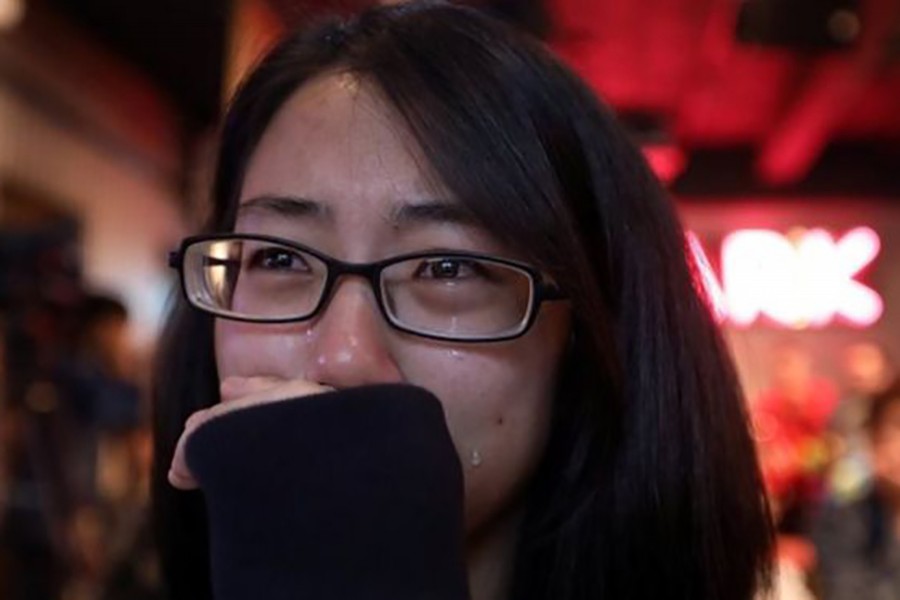Voters in Taiwan have rejected legalising same-sex marriages in a series of referendums on Saturday.
They backed the definition of marriage as the union of a man and woman.
Last year a high court had ruled in favour of same-sex unions, ordering legislation. The government has said it will still press on with new laws but they may now be weaker.
Meanwhile, President Tsai Ing-wen quit as leader of Taiwan's governing party after defeats in local elections.
Her pro-independence Democratic Progressive Party (DPP) lost more than half of the 13 cities and counties it won in 2014.
Taiwan's relations with China have deteriorated since Ms Tsai came to power in 2016.
Beijing has refused to deal with her because she does not recognise an agreement reached between the two sides in 1992 that both sides are part of one China.
What were voters asked about same-sex marriage?
The marriage issue was actually the subject of three separate referendums on Saturday, which were put forward by rival camps.
Conservative groups asked whether the current legislation - defining marriage as a union between a man and a woman in Taiwan's Civil Code - should remain unchanged, while LGBT activists asked for the marriage law to be amended to include same-sex couples.
Results showed voters backed the conservative "pro-family" groups.
The government had earlier said that Saturday's referendums would not affect it bringing in the changes required by the court ruling. The authorities are now expected to pass a special law, without amending the Civil Code.
But campaigners fear the eventual legislation will be weaker, reports BBC.
One possible outcome could be that gay couples are given legal protection - but not allowed to get married, correspondents say.


